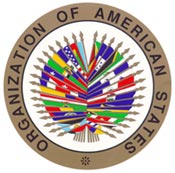 A showdown over ethanol is brewing at the Organization of American States’ General Assembly meeting this week in Panama. According to this story in the Washington (DC) Times, the U.S. and Brazil are pushing an OAS paper promoting looking for alternative fuel sources in the Western Hemisphere, more specifically, ethanol, which the Americans and Brazilians are producing in the billions of gallons:
A showdown over ethanol is brewing at the Organization of American States’ General Assembly meeting this week in Panama. According to this story in the Washington (DC) Times, the U.S. and Brazil are pushing an OAS paper promoting looking for alternative fuel sources in the Western Hemisphere, more specifically, ethanol, which the Americans and Brazilians are producing in the billions of gallons:
In a paper prepared to be delivered at the assembly, the OAS says that although the hemisphere is “endowed with abundant natural resources for energy production,” the bloc’s leaders should discuss alternatives to the region’s continuing dependency on fossil fuels.
In the case of the United States, it would mean reducing dependence on fuels originating in nations hostile to U.S. interests and promoting increased production of biofuels already widely used in countries such as Brazil, the world’s largest producer of sugar-based ethanol.
“The United States and Brazil are the world’s two largest biofuels producers, so cooperation is natural,” State Department spokesman on Latin American affairs, Eric Watnik, said in March. “Our goal is to advance global energy security by helping countries diversify their supply.”
 Not surprisingly, on the other side of the issue is the U.S.-hating Hugo Chavez, leader of oil-rich Venezuela. He’s joined by Cuba’s Fidel Castro, and not too surprisingly, Mexico… which has great oil reserves of its own:
Not surprisingly, on the other side of the issue is the U.S.-hating Hugo Chavez, leader of oil-rich Venezuela. He’s joined by Cuba’s Fidel Castro, and not too surprisingly, Mexico… which has great oil reserves of its own:
Increased demand for corn used to produce the starch-based version of ethanol made in North America has driven corn prices higher in recent months, subsequently raising Mexico’s tortilla prices.
Venezuela is the world’s sixth-largest exporter of oil, and the country’s anti-American president, Hugo Chavez, has been using its oil wealth to win the support of countries in the region. In the long run, the world’s reduced dependence on oil could lower Venezuela’s influence on international politics.

